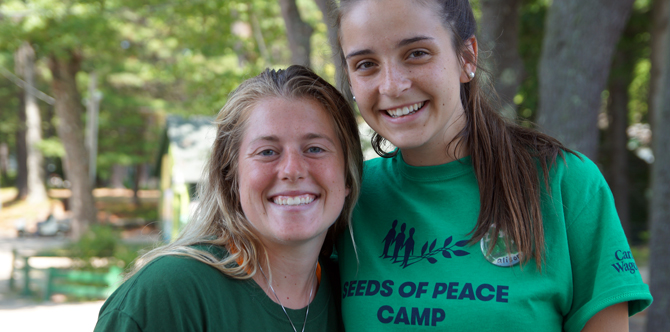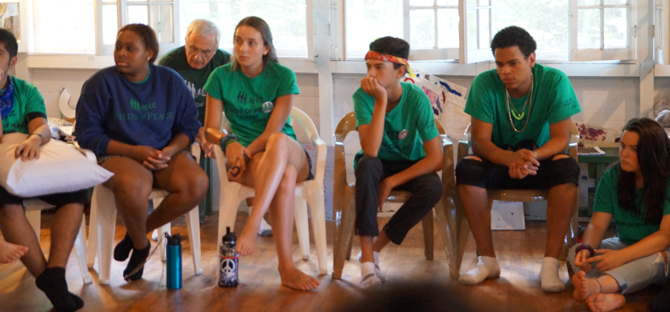I’ve always prided myself on my ability to win an argument—in a class discussion, with friends, and especially with my parents. Although it meant being the sole 5th grader on the team, I jumped at the opportunity to join debate when I entered middle school.
I remained a ruthless competitor through my sophomore year, and at the end of that year, I was offered the position of captain for the Public Forum Varsity Debate team at my school. I was thrilled.
Debate was cutthroat. We gleamed with accomplishment when the other team misspoke. There was a winner and a loser. That structure felt safe to me—I needed its validation. At the same time, however, someone always left the room feeling miserable and sometimes, it was me.
As much as they could thrill me, debate tournaments always somehow left me feeling exhausted. I hated prepping. The topics seemed relevant, but I rarely connected with them. I felt like a robot: researching facts and statistics just to spit them back out.
Then, the summer before my junior year, everything changed. I attended the Seeds of Peace Camp. The entire experience was so unfamiliar to me; I didn’t know a single person getting on the bus the first day, and, needless to say, after my debate training, dialogue and active listening were hardly my strong suit. I was so used to fighting my case to win and only listening to the other side in order to pick their argument apart—it’s what I’d been conditioned to do.

From the second I stepped into the dialogue hut at Camp, it was clear how fundamentally different the two approaches—debate versus dialogue—were. The judge was replaced with facilitators who made every effort to unite us. No longer did I wear stiff “Western Business Attire” with flats that gave my feet blisters. Instead, we all sported the same bright green t-shirts and left our shoes at the door to avoid bringing in the “outside dirt.” Instead of sitting rigidly across from one another and approaching the podium each time we spoke, we sat in a circle. We set community norms which were directly at odds with the spoken and unspoken rules of debate.
At first I was skeptical that dialogue could work. It felt too simple, too idealistic. Quickly, I realized this was not the case; in fact, dialogue demanded more of me than debate ever had. Dialogue, I learned, meant letting my guard down, being vulnerable, and really listening. The reality is you don’t change people’s minds by exposing what’s wrong with their viewpoint. What does change minds, however, is personal stories.
Sitting in the dialogue hut the past two summers, I’ve heard stories that have reinforced ideas I’ve always thought to be true, and others that have deeply challenged my beliefs and fundamental values. All of them, however, in one way or another, have allowed me to put myself into someone else’s shoes.

As I’ve begun to call upon this skill more and more outside of the dialogue hut, I’ve found myself reflecting. The reality is, I didn’t “choose” dialogue as the superior way to hold a conversation. Rather, I’ve learned to be confident enough to no longer need to control a discussion the way I used to. Seeds of Peace gave me that confidence. No longer do I need the validation of a judge’s ballot; I’ve discovered a new way of dealing with conflict, one in which people leave feeling heard, not hurt.


Alison: I knew you as a seed and now have been able to see you grow and bloom in such a positive way. You encouraged my son to attend and he is there now. I spoke with him yesterday and was thrilled to hear the joy in his voice, after only a few days! You are our future. In these days, which can often feel so negative and full of hatred, I see such a positive beacon of light that will enrich our future. Thank you for everything you are already doing!